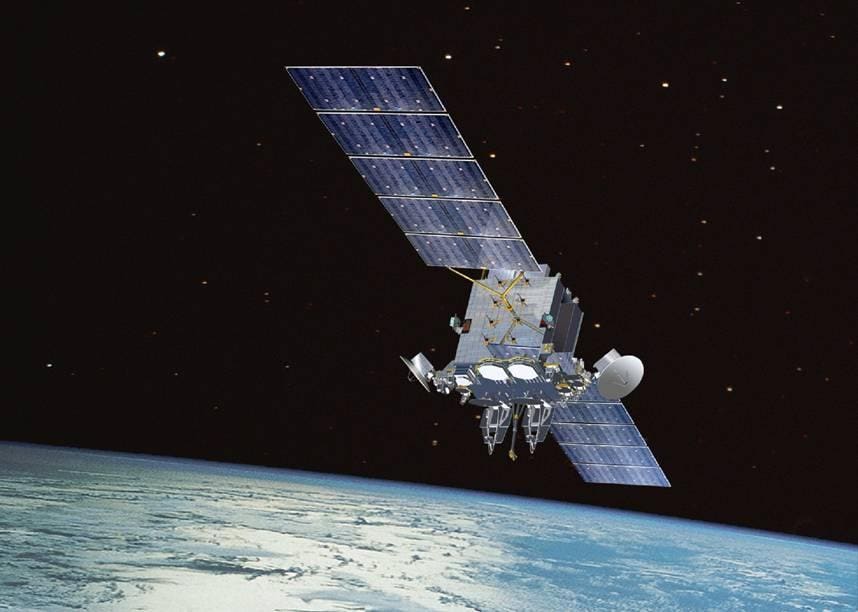I thought that this article was interesting for discussion purposes.
"Opinion: Why America Needs A Space Corps"
M. V. Smith | Aviation Week & Space Technology
April 5, 2017
Source:
http://aviationweek.com/space/opinion-why-america-needs-space-corps
"Opinion: Why America Needs A Space Corps"
M. V. Smith | Aviation Week & Space Technology
April 5, 2017
Source:
http://aviationweek.com/space/opinion-why-america-needs-space-corps
American space power stagnated under the stewardship of the U.S. Air Force a long time ago. Congress noted this over 25 years ago, but nothing has been done to fix it. The situation has only gotten worse: The U.S. is increasingly dependent on satellites for economic and military purposes, but those satellites lie undefended and highly vulnerable to attack. Meanwhile, foreign threats grow. The Air Force has done nothing substantive to deter attacks or to defend against them because the service’s interests lie elsewhere. Congress should create an autonomous U.S. Space Corps in the department of the Air Force (as the Marine Corps is to the Navy) as an initial step to set American space power on a path to reach its full potential.
In 2001, the so-called Rumsfeld Space Commission was cited as a last chance for the Air Force to get it right in space before Congress would act to reorganize the national security space community, possibly by creating a separate space force. The Rumsfeld Commission made several recommendations to advance space power, most of which were implemented begrudgingly by the Air Force. The service’s airpower culture has always struggled to accommodate “space geeks” as equals. However, the Air Force took advantage of the distraction caused by the Sept. 11, 2001, attacks to reverse course.
Satellites have become America’s golden goose and Achilles’ heel. Space is often treated like the “red-headed stepchild,” noted Mike Rogers last December, when he was chairman of the House Armed Services strategic forces subcommittee. “What we have got to recognize is that our adversaries know that we cannot fight and win a war without using space, and they have developed offensive capabilities that we have not done a good enough job of being prepared to respond to,” Rogers added.
In January, Sen. John McCain (R-Ariz.), chairman of the Senate Armed Services Committee, pointed to the rapidly advancing threats. “Russia and China are developing military capabilities explicitly to deny U.S. forces the use of space, including by targeting our satellites,” he said. It seems the U.S.’s dependence on space systems grows, but the threats grow faster.
American space power stalled under the Air Force for easily understood organizational and bureaucratic reasons. Every year the service faces unexpected bills. There are always new conflicts, crises, contingencies or cost overruns in aircraft programs that require a reshuffling of the budget. Airpower is the top priority, so space dollars pay the bills.
Space power simply cannot receive the priority it deserves inside the Air Force budgeting process. It is a cultural issue. Rand analyst Carl Builder pointed out in The Icarus Syndrome: The Role of Air Power Theory and the Evolution of the Air Force that space power is a competing faction airpower advocates must hold at bay. No matter how vital space power becomes to the nation, if it is relegated to a supporting role inside the Air Force, or any other service or agency, it will always receive short shrift.
The problem is more complicated than competition between airpower and space power. The Air Force has figured out a clever way to rob from the space budget in order to pay bills on the aviation side and then get more money from Congress. As Air Force Maj. Gen (ret.) James B. Armor, Jr., described it in 2008, “Every year there’s a process game where the Air Force cuts the space budget and the [Office of the Secretary of Defense] and Congress, with the loud support of the services and agencies that depend on Air Force space systems, restore it. Cynics point out that this is a Machiavellian way to increase the total Air Force budget—which works.”
The principal interest of the Air Force in space has less to do with securing America’s vital national interests there and more to do with using the space budget for other purposes.
Congress created the U.S. Army Air Corps and later the U.S. Army Air Force to give airmen autonomy within the Army and the ability to grow American airpower to its fullest potential. They succeeded. Now Congress must create the U.S. Space Corps to give space professionals similar budgetary and personnel autonomy within the Air Force, along with a mandate to grow U.S. space power to its fullest potential.
This is the century wherein humans will settle the Moon and Mars, harvest mineral resources from asteroids, and broadcast space solar power safely and cleanly wherever human and machine activity ensues. These transformative actions will take human interests far beyond Earth. Soldiers, sailors, marines, and airmen will remain Earthcentric thinkers and warfighters. Only an autonomous U.S. Space Corps—and eventually an independent U.S. Space Force—can develop beyond-Earth thinkers.
U.S. Air Force Col. (ret.) M.V. Smith is a professor of strategic studies at the School of Professional Military Education at Air University. The opinions expressed are his own, not those of the U.S. Air Force, Air University or Aviation Week.



